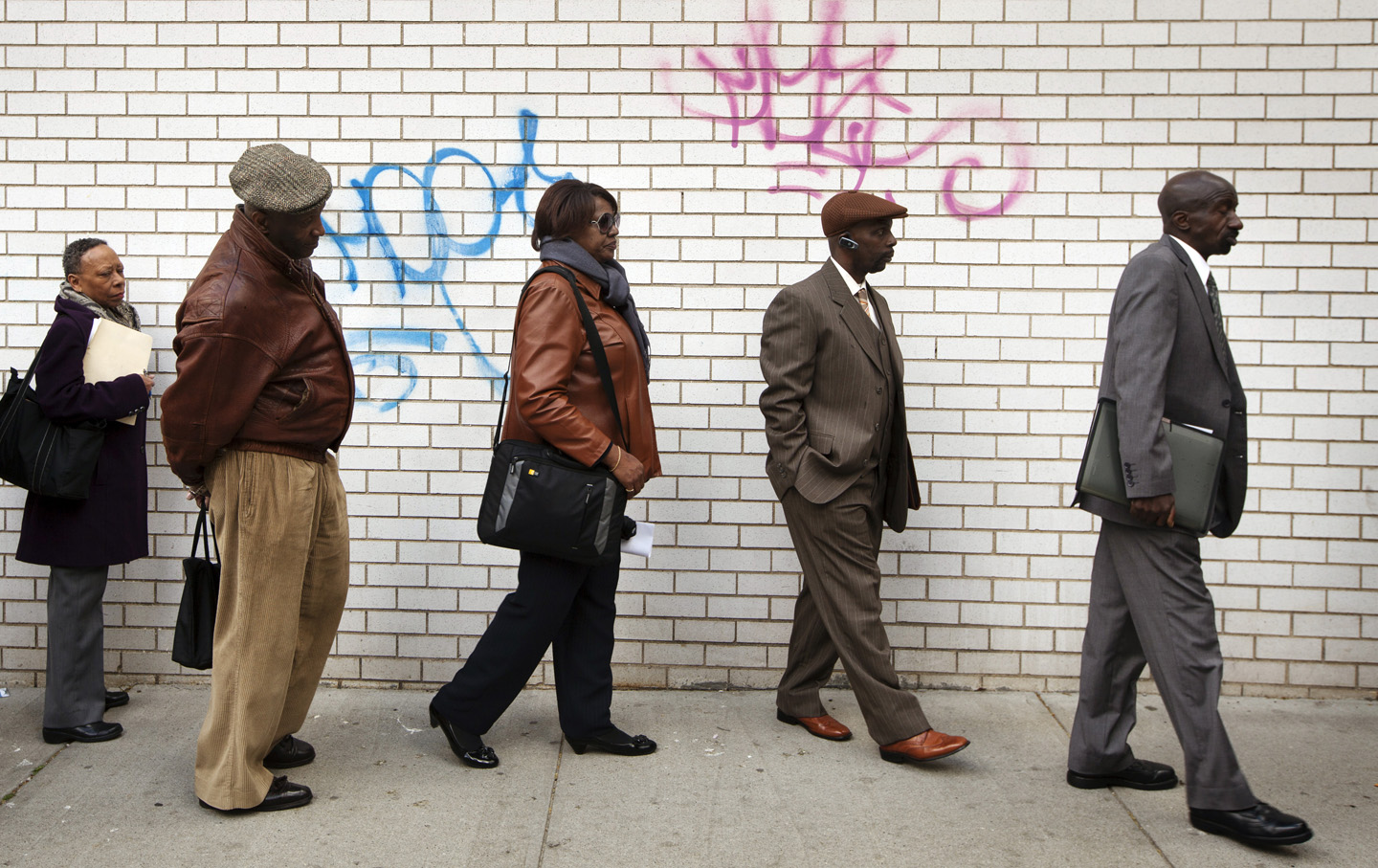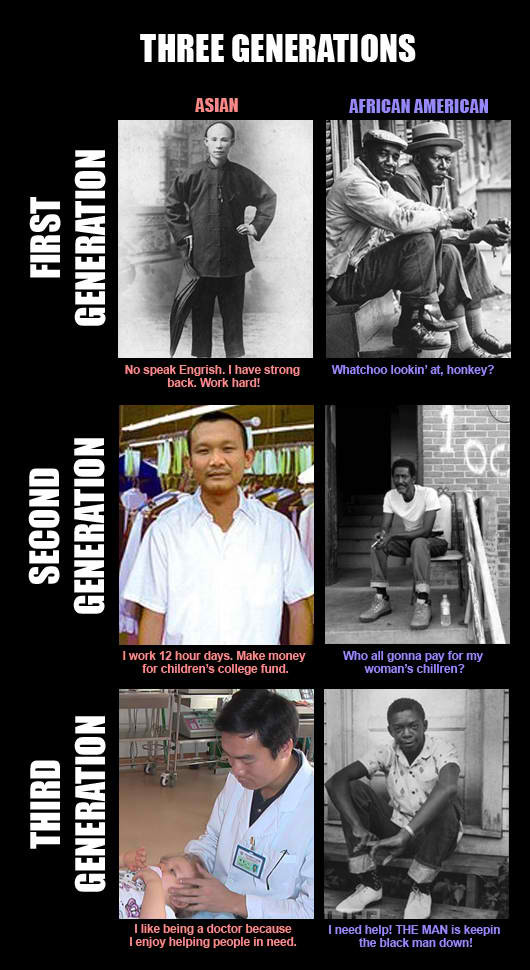
Job seekers stand in line to attend the Dr. Martin Luther King Jr. career fair held by the New York State Department of Labor. (Reuters / Lucas Jackson)
If current economic trends continue, the average black household will need 228 years to accumulate as much wealth as their white counterparts hold today. For the average Latino family, it will take 84 years. Absent significant policy interventions, or a seismic change in the American economy, people of color will never close the gap.
Those are the key findings of a new study of the racial wealth-gap released this week by the Institute for Policy Studies (IPS) and the Corporation For Economic Development (CFED). They looked at trends in household wealth from 1983 to 2013—a 30-year period that captured the rise of Reaganomics, expanded international trade and two major financial crashes fueled by bubbles in the tech sector and housing prices. The authors found that the average wealth of white households increased by 84 percent during those three decades, three times the gains African-American families saw and 1.2 times the rate of growth for Latino families.
To put that in perspective, the wealthiest Americans—members of the Forbes 400 list—saw their net worths increase by 736 percent during that period, on average.
If those trends persist for another 30 years, the average white family’s net worth will grow by $18,000 per year, but black and Hispanic households would only see theirs grow by $750 and $2,250 per year, respectively.
“[Economist] Thomas Picketty said that, left uninterrupted, we would move toward a hereditary aristocracy of wealth,” says Chuck Collins, one of the study’s authors. “What he didn’t say is that in the United States, that would be almost entirely a white aristocracy of wealth.”
The study looked at financial wealth—stocks, bonds, and the like—real estate and business capital, but excluded durable goods like cars and consumer appliances. Like other studies of the racial wealth gap, it excluded Asian Americans and Pacific Islanders, Native Americans, and other people of color because of limitations in the underlying data.
Recent years have brought a heightened focus on income inequality, but while they’re related, wealth inequality is far more pronounced. According to a study published by Demos last year, the median income for whites in 2011 was around 50 percent higher than it was for blacks and Latinos, but whites’ median household wealth was around 16 times greater.
It took 400 years of slavery, segregation, and institutionalized discrimination in the labor and housing markets to build the wealth gap that we see today. For example, by the time the Fair Housing Act made discrimination in housing illegal in 1968, people of color had missed out on decades of robust growth in the housing markets (and much of the next generation missed out on that wealth building in the 20 years it took to fully implement the law). “The racial wealth divide is how the past shows up in the present,” Chuck Collins tells The Nation. “We have a deep legacy of wealth inequality that undermines the whole idea that we have a meritocracy—that there’s an equal playing field.”
The racial wealth gap continues to grow not only because of income inequality—whites have more dollars to sock away—but because accumulated wealth is a mechanism for transmitting economic success from generation to generation. It’s a vicious cycle—poor communities have limited tax bases to fund their public-school systems, which lead to sharp disparities in educational quality. A family with some assets can help their kids pay for an education or put a down payment on a first home or kick them some seed money to start a small business. All of those things help the next generation climb the economic ladder. Wealth also provides an important cushion against unexpected shocks—things like temporary job losses or unexpected medical bills. If you’ve got some wealth, you can weather the storm without getting over your head in debt.
According to Princeton University sociologist Dalton Conley, the wealth of a child’s family is the single greatest predictor of that child’s future economic prospects. Conley, whose data did include things like cars and household goods, found that even white households hovering around the poverty line have a net worth of $10,000 to $15,000, but the typical black family at that income level will often be under water, with a negative net worth. In many cases, that means turning to usurious predatory lenders to stay afloat—an added expense of being poor.
 goes for everyone these days
goes for everyone these days

